Life-Threatening Emergency Conditions
- • Severe bleeding
- • Difficulty breathing
- • Unconsciousness or seizures
- • Signs of poisoning
In moments of pet emergencies, every second counts. Understanding how to navigate these situations can be the difference between life and death for our furry companions. Let’s explore the essential insights that can empower you as a pet owner to act swiftly and effectively.
Understanding what constitutes a pet emergency and how to prepare is crucial for every pet owner. Below, we highlight key emergency conditions and essential preventative measures.
When it comes to our furry friends, understanding emergency vet care is crucial. Emergencies can happen at any time, and knowing how to respond can make all the difference for your pet's health. At Best Vets Sydney, we believe that being informed empowers pet owners to act quickly and effectively in critical situations.
So, what exactly constitutes an emergency in veterinary care? Let’s dive into the essential insights every pet owner should have!
Recognizing an emergency can be the first step towards ensuring your pet receives the care they need. Emergencies typically involve life-threatening conditions that require immediate veterinary attention. It's essential to be alert and ready, as every moment counts!
Some common life-threatening conditions include:
By being aware of these conditions, you can act swiftly to seek help and potentially save your pet's life.
Next, let’s look at a few scenarios that require immediate veterinary care: The American Veterinary Medical Association (AVMA) provides a comprehensive list of situations. These often include:
These situations can escalate quickly, so always err on the side of caution. If you ever doubt whether something is an emergency, it’s best to consult a vet immediately!
Knowing the key signs that indicate your pet needs urgent care is extremely valuable. Here are some critical symptoms to watch for:
Understanding these symptoms can help you respond quickly and appropriately, which is essential for your pet's well-being.
Difficulty breathing in pets can stem from various causes, such as allergies, infections, or even blockages in the airway. If your pet is struggling to breathe:
Remember, your quick action can significantly impact their health!
Seizures can be frightening to witness. If your furry friend has a seizure:
Being prepared can make a challenging situation easier to handle.
Watch for symptoms like:
These could indicate serious conditions, such as obstructions or infections, which require immediate veterinary care.
Common signs of trauma include:
Always be proactive and consult a vet if your pet shows any of these symptoms.
Signs of poisoning can vary widely, but some common indicators include:
Time is of the essence here! If you suspect your pet has ingested something poisonous, contact a vet immediately.
It's crucial to understand that dogs and cats may exhibit different emergency symptoms: For a comprehensive guide on recognizing emergencies in your dog or cat, you can refer to resources like WesVet's article on recognizing a pet emergency.
Being aware of these differences can help you react appropriately in urgent situations.
Felines and canines have their unique ways of expressing distress. Cat owners should be on the lookout for:
Dog owners might notice:
Recognizing these subtle signs is crucial in maintaining your pet's health and ensuring timely veterinary intervention.
Preventative care can significantly reduce the likelihood of emergencies. Here are some measures you can take:
By investing time in prevention, you'll help ensure your pet remains healthy and happy!
Routine health checks can catch potential issues before they escalate into emergencies. At Best Vets Sydney, we recommend scheduling these visits at least once a year to maintain your furry friend's health.
Pets can’t tell us when something isn’t right, but they do communicate through their behavior. Pay attention to:
These signs can often indicate underlying health concerns that need to be addressed.
Being prepared for emergencies means having a plan! Here are some essentials:
Having these items on hand can save time when every second counts!
Your pet emergency kit should include:
Being prepared can alleviate stress in an emergency, ensuring that you focus on what matters most—your pet's health!
Knowing where to seek help in an emergency is vital. Here’s how you can find emergency vet care in Sydney:
Being prepared with this knowledge can provide peace of mind when you need it most!
Some of the top emergency vet clinics in Sydney include:
These clinics are well-equipped to handle urgent situations and provide your pet with the best care available.
Utilizing location-based services like Google Maps can help you find the nearest emergency vet clinics quickly. Always have your phone charged, and consider downloading pet health apps to keep this information at your fingertips.
Having access to 24/7 veterinary services can be a lifesaver! Many clinics in Sydney offer round-the-clock care, ensuring that you can get help whenever your pet needs it. Always check if your preferred clinic has this option available!
In the event of an emergency, time is of the essence! Always keep a current list of your pet's medications, allergies, and any pre-existing conditions readily available. This information can be invaluable to veterinary professionals and can help them provide prompt and effective care for your furry friend.
When a pet emergency strikes, it can be a heart-stopping moment for any pet owner. As a passionate animal advocate, I've seen firsthand how vital it is to have a plan in place. Remember, staying calm and taking immediate action can make a big difference in your furry friend's outcome. Here’s a quick guide to help you navigate through those tense moments!
If you ever find yourself in an emergency situation, knowing the right steps to take can help ensure your pet's safety. The first thing to do is assess the situation. Ask yourself: Is my pet in immediate danger? Once you've established that, follow these crucial steps:
These steps are essential in determining the best course of action. Remember, every second counts when it comes to your pet's health!
While you're on your way to the vet, there are a few actions you can take to help your pet. For instance, if your pet is bleeding, applying gentle pressure to the wound can be crucial. If your pet has ingested something toxic, try to determine what it was and bring any packaging with you. Being prepared can help the veterinary team provide the best care possible. For more immediate guidance, you can consult resources like PetMD's guide on what to do in a pet emergency.
Effective communication with your veterinarian is key during emergencies. When you arrive, clearly describe your pet's symptoms, the timeline of events, and any relevant medical history. This information can help the team quickly assess the situation and provide necessary treatment. Don’t hesitate to ask questions! You deserve to understand your pet's condition and the recommended treatments.
In a pinch, pet health hotlines can be a lifesaver! They offer quick advice and guidance, especially if you're unsure whether your pet needs to be seen immediately. Here are a few benefits of using these hotlines:
Utilizing these resources can provide a safety net, giving you peace of mind while waiting for professional help.
Once you arrive at the clinic, understanding what emergency veterinary services are available can help you feel more confident and prepared. Most clinics are equipped to handle a variety of emergencies, and knowing what to expect can alleviate some stress during an already tense situation.
Emergency veterinary procedures can vary based on your pet’s condition, but they often include:
It's vital to understand that these procedures are designed to stabilize your pet and address urgent health concerns.
When your pet is in critical care, you can expect a team of dedicated professionals to monitor their condition closely. They will provide consistent updates and involve you in decisions about ongoing treatment. Your role as a pet parent is just as important during this time—don’t hesitate to express any concerns you may have!
In some cases, your pet may require the expertise of a veterinary specialist. These professionals have advanced training in specific areas such as surgery, emergency medicine, or internal medicine. Their specialized knowledge can be crucial in handling complex cases, ensuring your pet receives the best care possible.
In summary, knowing how to react during a pet emergency can help save lives. Remember to recognize the key signs that warrant urgent attention and stay informed about the available services. Being proactive about your pet's health management can prevent many emergencies before they happen.
Always be vigilant for signs like difficulty breathing, severe vomiting, or trauma. These symptoms mean that immediate action is necessary. Trust your instincts—if you think something is wrong, it’s better to be safe than sorry!
Finally, I encourage every pet owner to take an active role in their pet’s well-being. Regular vet check-ups, a nutritious diet, and keeping an eye on behavior changes can go a long way in ensuring your furry companion stays healthy and happy. With a little preparation, you can handle emergencies like a pro!
Here is a quick recap of the important points discussed in the article:
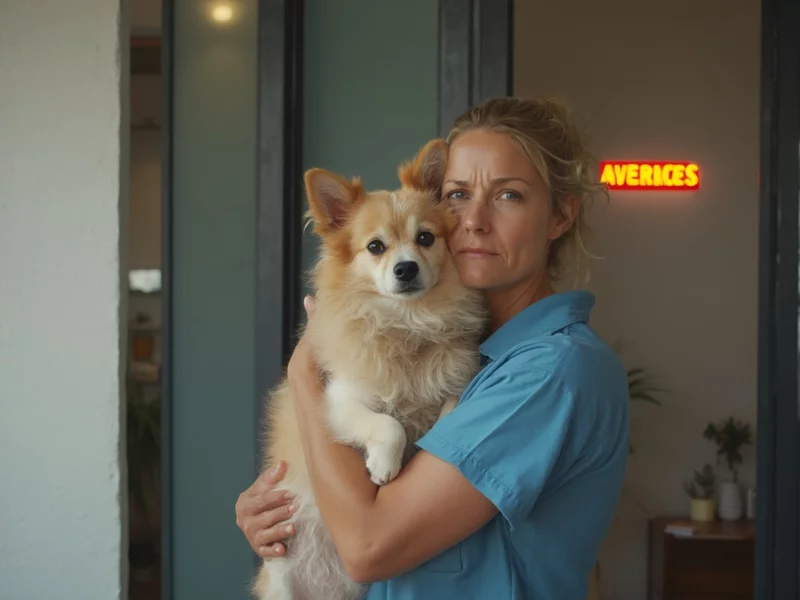
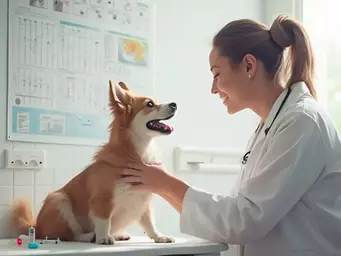 Understanding the Importance of Puppy Care
As a new puppy parent, ensuring your furry friend receiv
Understanding the Importance of Puppy Care
As a new puppy parent, ensuring your furry friend receiv
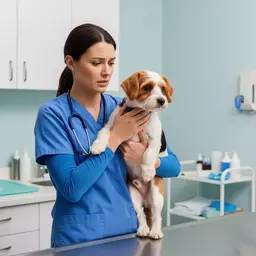 As pet owners, understanding the financial implications of emergency vet visits is crucial for ensur
As pet owners, understanding the financial implications of emergency vet visits is crucial for ensur
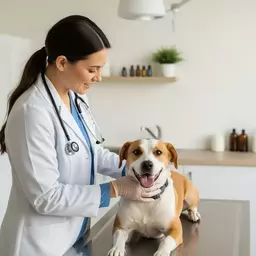 The journey towards a healthier pet can start with a simple question: Are you ready to consider a ho
The journey towards a healthier pet can start with a simple question: Are you ready to consider a ho
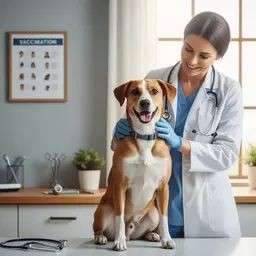 ##
Have you ever considered the significant impact that vaccinations have not just on your dog, but
##
Have you ever considered the significant impact that vaccinations have not just on your dog, but